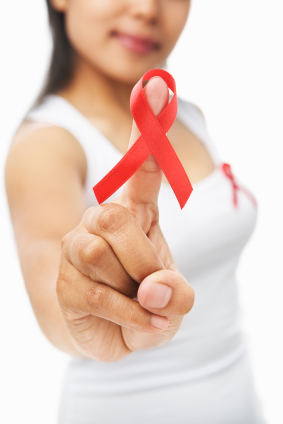Dear SuzyKnew!,
I heard that there is now a cure for HIV, is that true? What about a vaccine? Is there one, and if so how do I get it?
***
Dear Reader,
At this point there is no cure for HIV. A “cure” could mean two different things: 1) eliminating HIV from the body- called a “sterilizing cure”, or 2) lowering the amount of virus to an undetectable level without the use of medications; similar to what we understand as “remission” in cancer patients- called a “functional cure”. The misperception that HIV has a cure is likely rooted in the fact that we have effective treatments for HIV, and that people may feel “cured” if they are taking the right medications. But hold tight, things are happening so fast these days that we will very likely see a genuine cure for HIV in our lifetimes.
Over the past 20 years, much research has been conducted to develop new drugs, and the repurpose existing drugs to combat the HIV virus at different parts of its cellular structure and at different stages of its replication. Treatment with HIV medicines (antiretroviral therapy or ART for short), can’t cure HIV, but it can help people with HIV live longer, healthier lives. HIV medicines can also reduce the risk of HIV transmission.
Research findings on HIV are coming out so fast it’s hard to keep up! Just last week, a top doc and his team from Oregon identified where HIV hides out in the body and how it shields itself from our immune system. You may have heard of the “Berlin Patient”. He is an HIV positive man (American man living in Berlin, Germany) who received a stem cell transplant from a donor with a certain cell mutation that is known to be HIV resistant. After treatment, the amount of HIV virus plummeted in his body and he stopped taking ART. This is the first case of what scientists could call a “sterilizing cure”. It holds much promise, so much that in 2013, President Obama directed the NIH to spend 100 million dollars on this type of research.
You may also have heard about the Mississippi baby who did not receive any prenatal treatment for HIV (this is the standard of care around the world if a mom is known to be HIV positive, and is called prevention of maternal to child transmission of HIV, or PMTCT). When this baby girl was born, and it was discovered that the mom was HIV positive, doctors gave very high doses of ART to the baby. This baby soon was experiencing what doctors saw as a “functional cure” because soon after treatment, there was no virus detected in her body. Unfortunately, by the time the baby reached age four, she had stopped taking her HIV medications (for an unknown reason) and sadly the HIV virus came back. This was disappointing for the doctors involved not only because this child now has HIV, but also because the “cure” was not realized.
The HIV vaccine: Vaccines work by introducing a small amount of virus into your body, usually by a shot or more recently by inhalation- like the Flu Mist. Our amazing immune system recognize the foreign body and it mounts a response. Our immune system is so smart that when it encounters the virus again, it remembers the offender and employs a powerful defense. This is how all vaccines work, whether it’s for measles, polio, or the annual flu. But this tried and true approach doesn’t work for HIV. HIV is a changeable virus and there are lots of different strains out there. This makes developing a vaccine for HIV very challenging. Scientists need to fully understand the biology of HIV in order to develop a successful vaccine, and this takes time.
There are two types of vaccines being developed and tested for HIV: Therapeutic and Preventative. Therapeutic HIV vaccines are designed to control HIV infection in people who are already HIV positive. Preventive HIV vaccines are designed to protect HIV negative people from becoming infected or getting sick.
When its available, an HIV vaccine will save millions of lives around the world. There is some promising news. A large-scale vaccine study conducted in Thailand (called RV144) showed that a vaccine combination could prevent about 32% of new infections. There are many opportunities to be part of HIV vaccine research- check out the HIV Vaccine Network for a list of vaccine trials. Scientists need healthy volunteers, both HIV positive and negative, in order to develop a vaccine. This is a wonderful way to contribute to science and save the lives of millions around the world affected by HIV and AIDS.
I hope this answered your questions. Its complicated stuff, but the good news is that there are many talented scientists around the world working diligently to make HIV and AIDS a disease of the past.
Take care.


That’s interesting news about HIV vaccine/cure development.
However, I do hope TV shows and movies begin talking about this a little more rather than glorify sex and celebrate promiscuity. At the least, they could add the protected sex element in every sex or romantic scene. HIV/AIDS is REAL and not sexy!
Can a Sista’ get a amen!